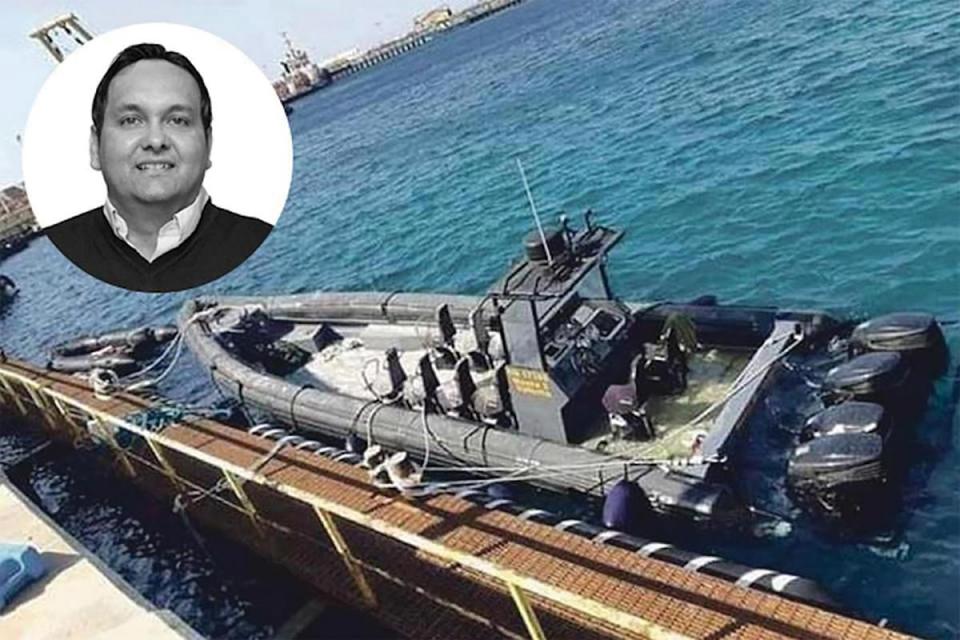
James Fenech and four employees have been cleared of breaching EU sanctions.
The authorities will not appeal a court decision to acquit an arms dealer of allegedly breaching Libya sanctions after a “series of blunders” saw the case fall through, according to sources.
James Fenech and four employees were cleared of breaching EU sanctions on war-torn Libya earlier this month.
They are believed to have helped a group of private military contractors travel into Libya to carry out a “kidnap or terminate” mission, according to a United Nations report.
However, despite the severity of the case, Fenech and his associates walked free of charges last month.
This was because the prosecution had failed to prove that the vessels and their outboard motors were on the list of items that need government clearance before being sent to Libya.
Since the court judgment last month, the police and government officials have held a number of meetings at the Office of the Attorney General to discuss a legal strategy to appeal the decision.
The deadline to appeal, however, closed on Friday afternoon.
Sources said “a series of blunders” had been committed by the prosecution and so there was no grounds for appeal.
This is the latest in a string of botched prosecutions and come as Attorney General Victoria Buttigieg faces pressure from critics about the performance of her office.
The Libya-Fenech case dates back to 2018 when the anti-terrorism squad started investigating how a military-grade Rigid Hull Inflatable Boat (RHIB), arrived in Malta with 20 people on board.
The authorities will not appeal a court decision to acquit an arms dealer of allegedly breaching Libya sanctions after a “series of blunders” saw the case fall through, according to sources.
James Fenech and four employees were cleared of breaching EU sanctions on war-torn Libya earlier this month.
They are believed to have helped a group of private military contractors travel into Libya to carry out a “kidnap or terminate” mission, according to a United Nations report.
However, despite the severity of the case, Fenech and his associates walked free of charges last month.
This was because the prosecution had failed to prove that the vessels and their outboard motors were on the list of items that need government clearance before being sent to Libya.
Since the court judgment last month, the police and government officials have held a number of meetings at the Office of the Attorney General to discuss a legal strategy to appeal the decision.
The deadline to appeal, however, closed on Friday afternoon.
Sources said “a series of blunders” had been committed by the prosecution and so there was no grounds for appeal.
This is the latest in a string of botched prosecutions and come as Attorney General Victoria Buttigieg faces pressure from critics about the performance of her office.
The Libya-Fenech case dates back to 2018 when the anti-terrorism squad started investigating how a military-grade Rigid Hull Inflatable Boat (RHIB), arrived in Malta with 20 people on board.
They had claimed to have been travelling to Libya to carry out geological surveys but had opted to flee out of Benghazi due to hostile militia presence.
In 2019, a United Nations Security Council report concluded that Fenech’s claims lacked credibility and he was found to be in ‘technical non-compliance’ with the UN’s arms embargo on the North African country.
The report said that his charter company supplied two boats that evacuated a team of private military operatives from Benghazi to Valletta after they were threatened by Libyan strongman Khalifa Haftar.
It detailed how, in June 2019, an expert panel on Libya identified a well-funded private military company operation, named ‘Project Opus’.
The operation, the report reads, was designed to provide the LNA with a raft of military support, including armed assault aviation, intelligence surveillance and reconnaissance aircraft.
It also included a component to “kidnap or terminate” individuals regarded as high-value targets in Libya, the report reads.
According to the report, some of the air and sea assault elements of the operation were mounted from Amman, in Jordan, and Valletta in June 2019.
But the report says that, towards the end of the month, a decision was made to evacuate a team of 20 military operatives because Haftar was unimpressed with the aircraft procured for the operations and made threats against the team.
Fenech’s two special forces specification RHIB boats were used for the 350- nautical mile voyage from Benghazi to Valletta.
According to the report, Fenech informed the UN that he was told the two vessels he supplied were going to be used to evacuate oil and gas workers. They had claimed to have been travelling to Libya to carry out geological surveys but had opted to flee out of Benghazi due to hostile militia presence.
In 2019, a United Nations Security Council report concluded that Fenech’s claims lacked credibility and he was found to be in ‘technical non-compliance’ with the UN’s arms embargo on the North African country.
The report said that his charter company supplied two boats that evacuated a team of private military operatives from Benghazi to Valletta after they were threatened by Libyan strongman Khalifa Haftar.
It detailed how, in June 2019, an expert panel on Libya identified a well-funded private military company operation, named ‘Project Opus’.
The operation, the report reads, was designed to provide the LNA with a raft of military support, including armed assault aviation, intelligence surveillance and reconnaissance aircraft.
It also included a component to “kidnap or terminate” individuals regarded as high-value targets in Libya, the report reads.
According to the report, some of the air and sea assault elements of the operation were mounted from Amman, in Jordan, and Valletta in June 2019.
But the report says that, towards the end of the month, a decision was made to evacuate a team of 20 military operatives because Haftar was unimpressed with the aircraft procured for the operations and made threats against the team.
Fenech’s two special forces specification RHIB boats were used for the 350- nautical mile voyage from Benghazi to Valletta.
According to the report, Fenech informed the UN that he was told the two vessels he supplied were going to be used to evacuate oil and gas workers.
_____________




